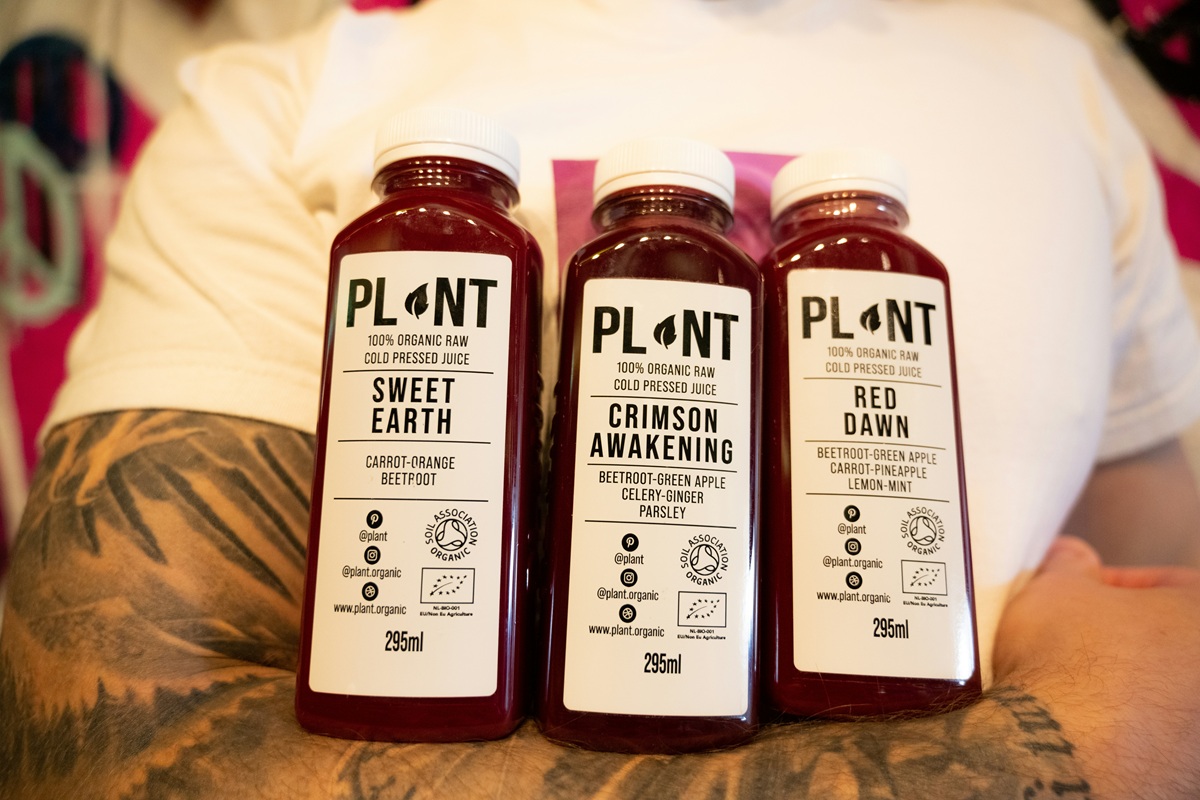The beverage industry is undergoing a significant transformation as consumers increasingly gravitate towards healthier and more sustainable options. Plant-based beverages, once considered niche products, have surged in popularity, driven by a growing awareness of health benefits, environmental concerns, and dietary preferences. This article explores the trends and innovations shaping the plant-based beverage market, highlighting the factors contributing to its rapid growth and the future potential of this dynamic sector.
Understanding Plant-Based Beverages
Plant-based beverages encompass a wide range of drinks made primarily from plant sources, including nuts, grains, seeds, and legumes. These beverages serve as alternatives to traditional dairy products and are often favoured for their nutritional benefits and lower environmental impact. The most common types include:
- Nut Milks: Almond, cashew, and hazelnut milks are popular for their creamy textures and unique flavours.
- Grain-Based Drinks: Oat and rice milks have gained traction due to their versatility and mild taste.
- Legume-Based Options: Soy milk remains a staple, known for its protein content and similarity to dairy.
- Herbal and Fruit Infusions: These beverages, including kombucha and cold-pressed juices, offer refreshing alternatives packed with vitamins and antioxidants.
The appeal of plant-based beverages lies not only in their health benefits but also in their ability to cater to various dietary restrictions, such as lactose intolerance and veganism.
The Surge in Popularity
The rise of plant-based beverages can be attributed to several key factors:
Health Consciousness
As consumers become more health-conscious, they are increasingly seeking alternatives that align with their wellness goals. Research indicates that a significant portion of the population believes plant-based diets can reduce the risk of chronic diseases, including heart disease and diabetes. This perception has led to a surge in demand for plant-based options, with many consumers actively looking to incorporate these beverages into their daily routines.
Environmental Awareness
The environmental impact of food production has become a pressing concern for many consumers. Plant-based beverages are often viewed as more sustainable alternatives to dairy, as they typically require fewer resources to produce. The shift towards eco-friendly choices is driving consumers to seek out products that align with their values, further fuelling the growth of the plant-based beverage market.
Flexitarianism
The rise of flexitarianism—a dietary approach that emphasizes plant-based foods while allowing for occasional meat consumption—has also contributed to the popularity of plant-based beverages. This trend appeals to a broader audience, including those who may not identify as strictly vegan or vegetarian but are interested in reducing their meat intake. As a result, brands are increasingly targeting flexitarians with innovative and appealing plant-based options.
Market Growth and Trends
The plant-based beverage market is experiencing remarkable growth, with projections indicating a compound annual growth rate (CAGR) of over 13% in the coming years. This growth is driven by several emerging trends:
Diverse Product Offerings
The variety of plant-based beverages available on the market has expanded significantly. Consumers can now choose from an array of options, including flavoured nut milks, protein-rich soy drinks, and innovative blends that combine multiple plant sources. This diversity caters to different taste preferences and dietary needs, making it easier for consumers to find products that suit their lifestyles.
Innovative Flavour Profiles
As competition in the plant-based beverage market intensifies, brands are focusing on flavour innovation to attract consumers. Companies are experimenting with unique combinations of fruits, vegetables, herbs, and spices to create exciting taste profiles that challenge traditional beverage norms. This emphasis on flavor not only enhances the appeal of plant-based drinks but also addresses the common perception that they lack taste compared to their dairy counterparts.
Functional Ingredients
The incorporation of functional ingredients into plant-based beverages is another trend gaining traction. Consumers are increasingly seeking products that offer additional health benefits, such as enhanced immunity, digestive support, and energy boosts. Brands are responding by formulating beverages with added vitamins, minerals, and superfoods, positioning them as not just alternatives but also as functional health products.
Consumer Preferences and Behaviour
Understanding consumer preferences is crucial for brands looking to succeed in the plant-based beverage market. Recent studies reveal several insights into consumer behaviour:
Preference for Plant-Based Labels
A significant majority of consumers prefer the term “plant-based” over “vegan” or “vegetarian.” This preference reflects a broader acceptance of plant-based diets as a lifestyle choice rather than a strict dietary restriction. Brands that emphasize their plant-based credentials are likely to resonate more with consumers, leading to increased sales and brand loyalty.
Taste as a Key Driver
While health benefits are a primary motivator for purchasing plant-based beverages, taste remains a critical factor. Many consumers are still hesitant to try plant-based alternatives due to concerns about flavour. Brands that prioritize taste and invest in flavour innovation are well-positioned to capture a larger share of the market.
Clean Label Demand
Today’s consumers are increasingly interested in transparency and simplicity when it comes to ingredients. Many prefer products with clean labels—those that contain recognizable, easy-to-pronounce ingredients. This trend is particularly relevant in the plant-based beverage sector, where consumers are looking for options that align with their health-conscious values.
Innovations in Production and Technology
The plant-based beverage industry is not only evolving in terms of product offerings but also in production methods and technologies. Innovations in this area are helping brands create better-tasting, more nutritious beverages:
Advanced Processing Techniques
New processing techniques, such as cold-pressing and high-pressure processing, are being employed to retain the nutritional integrity of plant-based ingredients. These methods help preserve flavours and nutrients, resulting in higher-quality beverages that appeal to health-conscious consumers.
Fermentation and Culturing
Fermentation is gaining popularity in the production of plant-based beverages, particularly in the creation of dairy alternatives. This process not only enhances flavour but also introduces beneficial probiotics, making these beverages more appealing to health-conscious consumers. Brands are leveraging fermentation to create products that mimic the taste and texture of traditional dairy while offering additional health benefits.
Sustainable Sourcing
Sustainability is a key focus for many brands in the plant-based beverage market. Companies are increasingly prioritizing sustainable sourcing practices, ensuring that their ingredients are ethically produced and environmentally friendly. This commitment to sustainability resonates with consumers who are looking for products that align with their values.
Challenges Facing the Industry
Despite the promising growth of the plant-based beverage market, several challenges remain:
Consumer Perception
While awareness of plant-based diets is increasing, some consumers still harbour misconceptions about the taste and nutritional value of plant-based beverages. Overcoming these perceptions will require ongoing education and marketing efforts from brands.
Price Sensitivity
Many plant-based beverages are priced higher than their dairy counterparts, which can deter price-sensitive consumers. As the market continues to grow, brands will need to find ways to reduce production costs and offer competitive pricing to attract a broader audience.
Competition from Traditional Beverages
The plant-based beverage market faces stiff competition from traditional dairy products and other beverage categories. Brands must differentiate themselves through unique offerings, innovative flavours, and compelling marketing strategies to capture consumer attention.
The Future of Plant-Based Beverages
The future of plant-based beverages looks promising, with continued growth expected in the coming years. As consumer preferences shift towards healthier and more sustainable options, brands that prioritize innovation, flavour, and transparency will thrive in this evolving market.
Expanding Market Opportunities
As the plant-based beverage market matures, new opportunities will arise for brands to explore. This includes the potential for expansion into emerging markets, where demand for plant-based products is on the rise. Additionally, collaborations between brands and ingredient suppliers can lead to the development of innovative products that cater to diverse consumer needs.
Embracing Technology
Advancements in technology will play a crucial role in shaping the future of plant-based beverages. From improved processing methods to innovative ingredient sourcing, technology will enable brands to create better-tasting, more nutritious products that resonate with consumers.
Continued Focus on Sustainability
Sustainability will remain a key driver in the plant-based beverage market. Brands that prioritize eco-friendly practices, from sourcing to packaging, will appeal to environmentally conscious consumers. As awareness of environmental issues continues to grow, the demand for sustainable plant-based options will only increase.
Conclusion
The rise of plant-based beverages represents a significant shift in consumer preferences and the beverage market as a whole. Driven by health consciousness, environmental awareness, and the desire for variety, these beverages are becoming mainstream options for consumers seeking healthier alternatives. As brands continue to innovate and adapt to changing consumer demands, the future of plant-based beverages looks bright, with ample opportunities for growth and expansion in this dynamic sector.
This article provides a comprehensive overview of the trends and innovations in the plant-based beverage market, emphasizing the factors driving its growth and the challenges it faces. By focusing on consumer preferences, production innovations, and sustainability, the article highlights the potential for continued success in this evolving industry.




